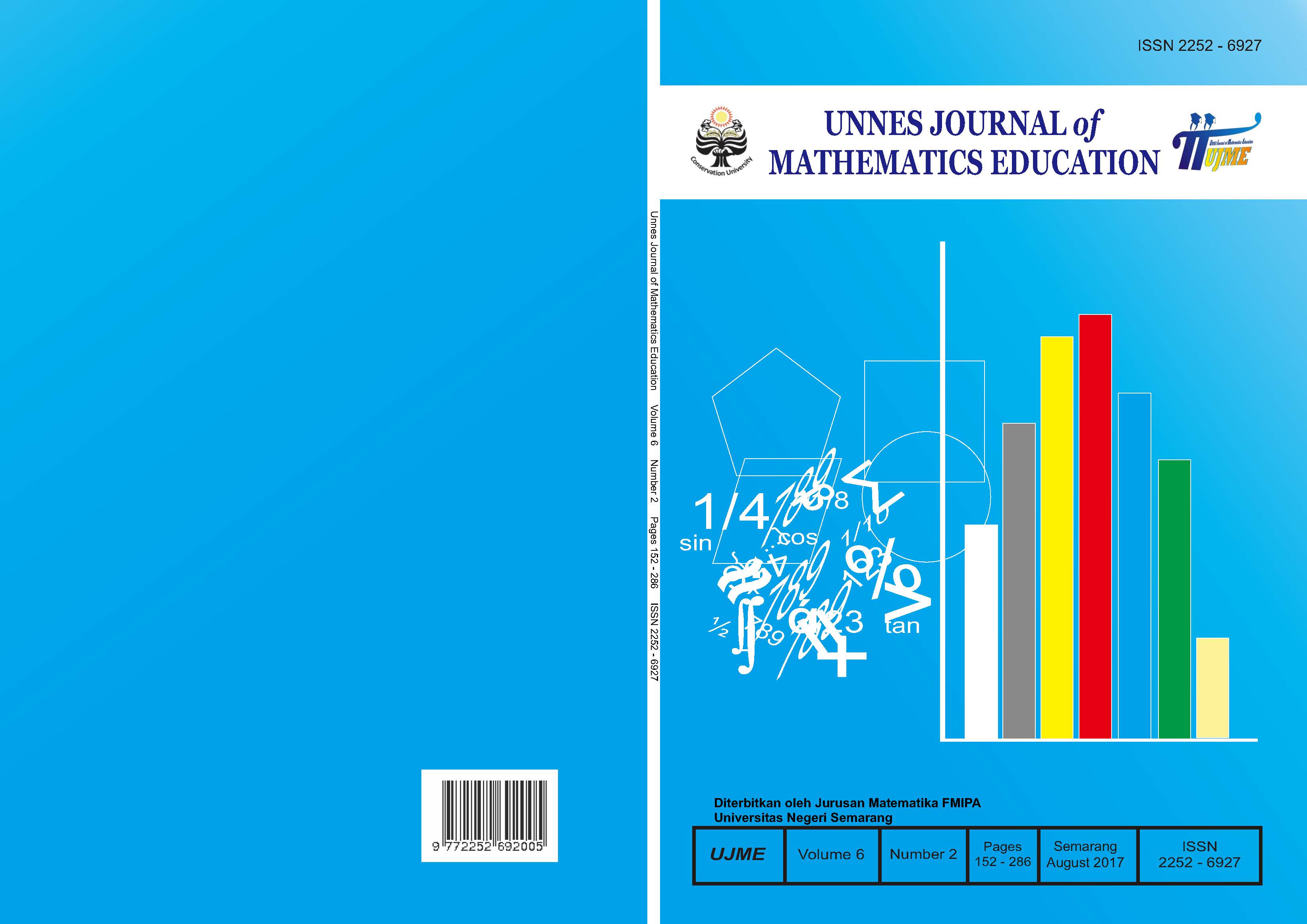The Effectiveness of Cooperative Learning Model of Pair Checks Type on Motivation and Mathematics Learning Outcomes of 8th Grade Junior High School Students
##plugins.themes.academic_pro.article.main##
Abstract
The purpose of this research was to know the effectiveness of Pair Checks cooperative model towards students’ learning result and learning motivation of eight grade. Population of this research were students of eight grade Junior High School 2 Pati in the academic year 2016/1017. The research used cluster random sampling technique.Where the selected samples were students of class VIII H as experimental class and class VIII G as control class. The data collected by the method of documentation, test methods, and scale methods. The analyzed of data used completeness test and average different test. The results showed that: (1) students’ learning result who join Pair Checks cooperative model have classical study completeness; (2) students’ mathematics learning result who join Pair Checks cooperative model is better than students mathematics learning result who join ekspository learning; (3) students’ learning motivation who join Pair Checks cooperative model is better than students’ learning motivation who join ekspository learning.
##plugins.themes.academic_pro.article.details##
References
Barczi, K. (2013). Applying cooperative techniques in teaching problem solving. CEPS Journal (3), 61-78.
Eggen, P. dan Kauchak, D. (2012). Strategi dan Model Pembelajaran. Jakarta: Indeks.
Huda, M. (2013). Model-model Pengajaran dan Pembelajaran: Isu-isu Metodis dan Paradigmatis. Yogyakarta: Pustaka Pelajar.
Lestari, R. et al. (2012). Penerapan Model Pembelajaran Kooperatif Tipe Pair Checks Pemecahan Masalah untuk Meningkatkan Social Skill Siswa. Jurnal Pendidikan Fisika Indonesia, 8(2), 190-194.
Sardiman. (2006). Interaksi dan Motivasi Belajar-Mengajar. Jakarta: PT Raja Grafindo Persada.
Septiana, M., Mashuri, Agoestanto, A. (2012). Keefektifan Model TGT Berbantuan CD Pembelajaran Rekreatif Terhadap Motivasi dan Hasil Belajar. Unnes Journal of Mathematics Education, 1(2), 15-21.
Slameto. (2010). Belajar dan faktor-faktor yang mempengaruhinya. Jakarta: Rineka Cipta.
Soedjadi. (2000). Kiat Pendidikan Matematika di Indonesia Konstatasi Keadaan Masa Kini Menuju harapan Masa Depan. Jakarta: Depdiknas.
Suherman, E. (2003). Strategi Pembelajaran Matematika Kontemporer. Bandung: UPI.
Suyatno. (2009). Menjelajah Pembelajaran Inovatif. Sidoarjo: Masmedia Buana Pustaka.
Swasono, A.H, Suyitno, A & Susilo, B.E. (2014). Penerapan Pembelajaran Probing-Prompting Terhadap Hasil Belajar Peserta Didik Pada Materi Lingkaran. Unnes Journal of Mathematics Education, 3(2), 101-106.
Wena, M. (2013). Strategi Pembelajaran Inovatif Kontemporer. Jakarta: Bumi Aksara.
